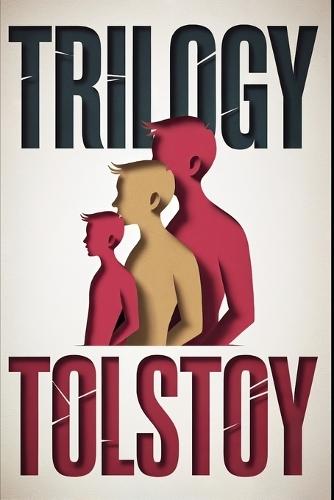Overview
Leo Tolstoy's autobiographical trilogy-Childhood (1852), Boyhood (1854), and Youth (1857)-stands as one of the most profound explorations of human development in world literature. Written when Tolstoy was in his twenties, these interconnected novellas launched the career of one of Russia's greatest writers while establishing a new standard for psychological realism in fiction. The trilogy follows Nikolai Irtenev from age ten through his university years, tracing his journey from the protected world of aristocratic childhood through the turbulent confusion of adolescence to the intellectual awakening of young adulthood. Drawing heavily from Tolstoy's own experiences growing up on his family's estate and later studying in Moscow, the work transforms personal memory into universal artistic truth, capturing the essential experiences that shape human consciousness and moral development. What makes this trilogy revolutionary is Tolstoy's unprecedented ability to penetrate the inner life of his protagonist at each stage of development. Rather than simply chronicling external events, he reveals the complex psychological processes through which a young person makes sense of the world, relationships, death, social hierarchies, and personal identity. Each volume presents a distinct phase of consciousness: the immediate, sensory world of childhood; the self-conscious awkwardness and emotional intensity of boyhood; and the philosophical questioning and idealistic fervor of youth. The trilogy also serves as a rich portrait of Russian society in the first half of the 19th century, depicting the world of the landed gentry with both intimate affection and growing critical awareness. Through Nikolai's evolving perspective, readers witness the social dynamics, educational systems, and cultural values of aristocratic Russia, while also observing the protagonist's gradual awakening to questions of social justice and personal responsibility. Thematically, the work explores the tension between innocence and experience, the formation of moral consciousness, the pain and necessity of growth, and the search for authentic meaning in life. These concerns would remain central to Tolstoy's later masterpieces, making the trilogy essential reading for understanding the philosophical and artistic foundations of works like War and Peace and Anna Karenina. As both a literary achievement and a psychological document, Tolstoy's autobiographical trilogy offers readers a uniquely intimate and insightful journey through the formative experiences that shape human character, while establishing the author's lifelong preoccupation with questions of moral development, social responsibility, and the search for truth.
Full Product Details
Author: Sergey Adana ,
Leo Tolstoy
Publisher: Independently Published
Imprint: Independently Published
Dimensions:
Width: 15.20cm
, Height: 1.90cm
, Length: 22.90cm
Weight: 0.485kg
ISBN: 9798298257916
Pages: 362
Publication Date: 15 August 2025
Audience:
General/trade
,
General
Format: Paperback
Publisher's Status: Active
Availability: Available To Order

We have confirmation that this item is in stock with the supplier. It will be ordered in for you and dispatched immediately.



